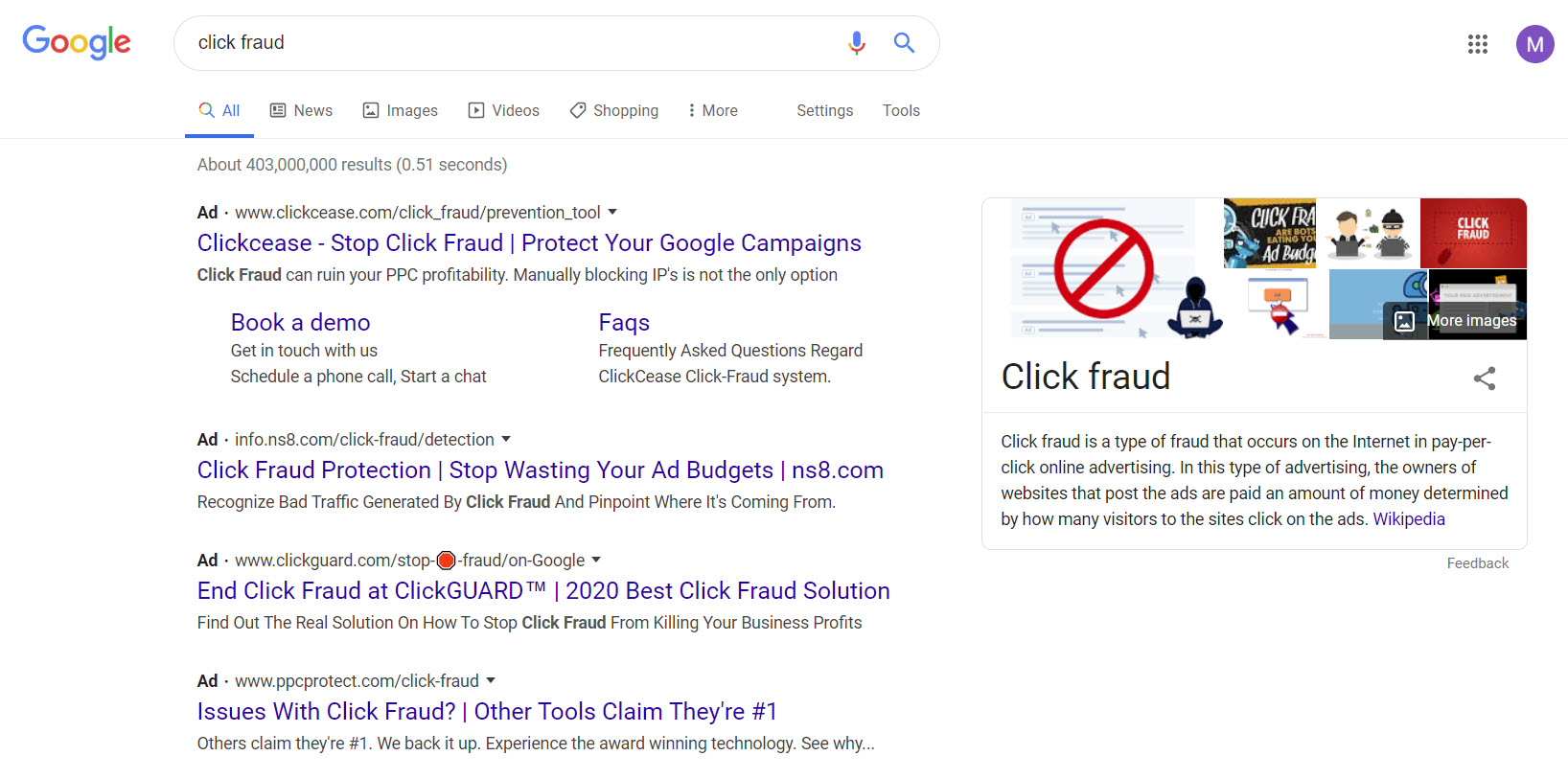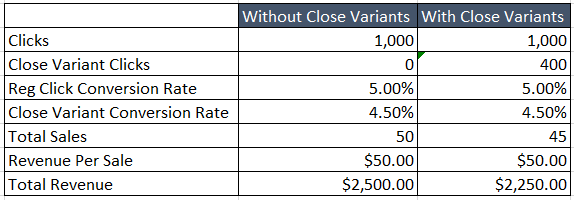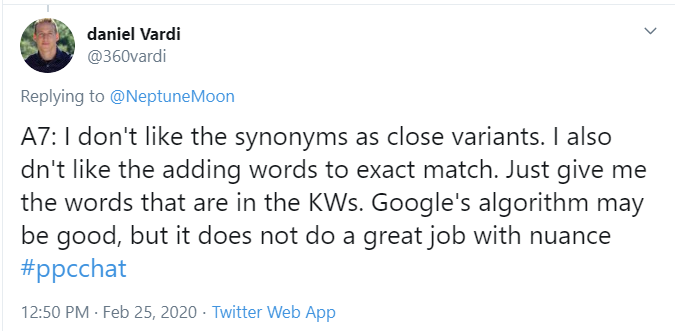Click fraud – the practice of users or robots intentionally clicking on paid search ads to run up advertiser costs or drive profits for content sites – has been around almost since the beginning of paid search.
It started surfacing as a conversation at search engine marketing conferences in around 2004 or 2005, and by 2006 was a hot topic.
In January 2006, WIRED predicted that click fraud could swallow the internet. Both Yahoo and Google were sued in click fraud cases.
Eventually, search engines instituted processes to detect invalid clicks and refund click costs.
By 2008 or so, click fraud was no longer on the agenda at search conferences.
While click fraud still existed, and does to this day, it felt like it was under control.
Click fraud protection software emerged, helping to protect advertisers.
If you search for “click fraud” today, most of the information you’ll see is from click fraud detection software:

I’d bet that most PPC advertisers don’t spend much time worrying about click fraud.
Advertisers are more worried about close variants.
And close variants are the new click fraud.
Close Variants Are the New Click Fraud
In the early days of PPC, we had three match types: Exact, Phrase, and Broad.
The definitions were simple:
- Exact match: Search query must match the keyword exactly.
- Phrase match: Search query must include all words in the keyword, in that order.
- Broad match: Search query must include all words in the keyword, in any order.
In 2012, broad match was expanded to include similar phrases and relevant variations.
At first, engines allowed advertisers to choose whether to serve ads on close variants.
In 2014, Google took that option away and required all advertisers to include close variants.
That was the beginning of the end of true exact match.
Today, match types hardly seem to matter.
Close variants have wreaked havoc on tightly themed account structure.
Once-popular tactics like single-keyword ad groups have been rendered nearly obsolete.
And close variants are driving irrelevant traffic that’s akin to click fraud.
If you ask the search engines, close variants are a great thing.
In their 2014 announcement about requiring advertisers to opt in to close variants, Google sang the praises of the news, calling close variants “an intuitive way to connect people with the businesses they’re searching for.”
Close variants were supposed to be a way to match advertisers with the thousands of brand-new queries that happen on Google each day.
And close variants aren’t all bad. There are instances where a close variant performs well, at a lower cost.
Close variant success stories abound.
Why Worry About Close Variants?
So why worry about close variants?
Shouldn’t we welcome them with open arms?
Not exactly.
For one thing, close variants now make up a significant portion of paid search ad clicks.
Nearly 40% of exact match search queries now come from close variants, and, more importantly, conversion rates are 10-15% lower.
Think about that for a minute.
With close variants, advertisers now must contend with a decent chunk of lower-converting traffic that they can’t control.
Here’s how the math breaks down:

That’s a 10% decrease in revenue with all other things equal.
It really is akin to being hit by click fraud.
Yet there is no redress for low-quality close variants like there is for click fraud.
What Can Advertisers Do?
Well, you can keep a close watch on search query reports and aggressively add negative keywords.
Advertisers should be doing this anyway – search query report review should be an integral part of managing any PPC campaign.
But if you’re like most advertisers, even with daily search query review, it’s hard to keep up with the barrage of low-quality close variant matches.

Enter technology.
When click fraud became an issue in paid search, third-party software solutions emerged to detect and block fraudulent clicks.
How to Detect & Block Fraudulent Clicks
The same has started to happen with close variants.
A few third-party software options have been developed to help weed out irrelevant close variants.
Adalysis
Adalysis offers several keyword tools to surface duplicate search terms, search terms to add as negative keywords, and n-grams to add as negatives.
N-grams are a great way to deal with close variants.
N-grams analyze the instances of a word or phrase across all query data to help you see individual words that are not converting.
Here’s an example:

This advertiser is getting search queries that include the abbreviated names of universities.
However, the advertiser isn’t targeting universities with this PPC campaign, so these terms are irrelevant.
Adding these terms as negatives will help prevent ads from showing when these appear as close variants.
Optmyzr
Optmyzr is another software tool that helps identify low-quality close variants.
There are other tools as well.
The downside of third party tools is they cost money.
While it’s a good investment, not every advertiser can afford to pay for tools.
That’s where scripts come in.
If you’re not already using scripts, you’re missing out on a great way to automate routine tasks and gather data.
Both Google Ads and Microsoft Ads offer scripts.
Best part?
They’re free.
In addition to its paid suite of tools, Optmyzr offers a free script to help advertisers monitor close variants. The script will output a Google Sheet showing how your keywords have been changed by close variants.
Brainlabs
Brainlabs offers a script to reverse close variants by adding negatives.
Scripts
Nils Rooijmans has a website full of great scripts, including one to monitor close variants.
The Takeaway
Close variants are just another form of click fraud that PPC advertisers need to deal with.
They’re not well-liked.

With diligence, advertisers can manage close variants, just like they manage click fraud.
More Resources:
- Google Ads Close Variants to Include Words With the Same Meaning
- Keyword Theory in the World of PPC with Navah Hopkins [PODCAST]
- What Is Ethical PPC?
Image Credits
All screenshots taken by author, March 2020





